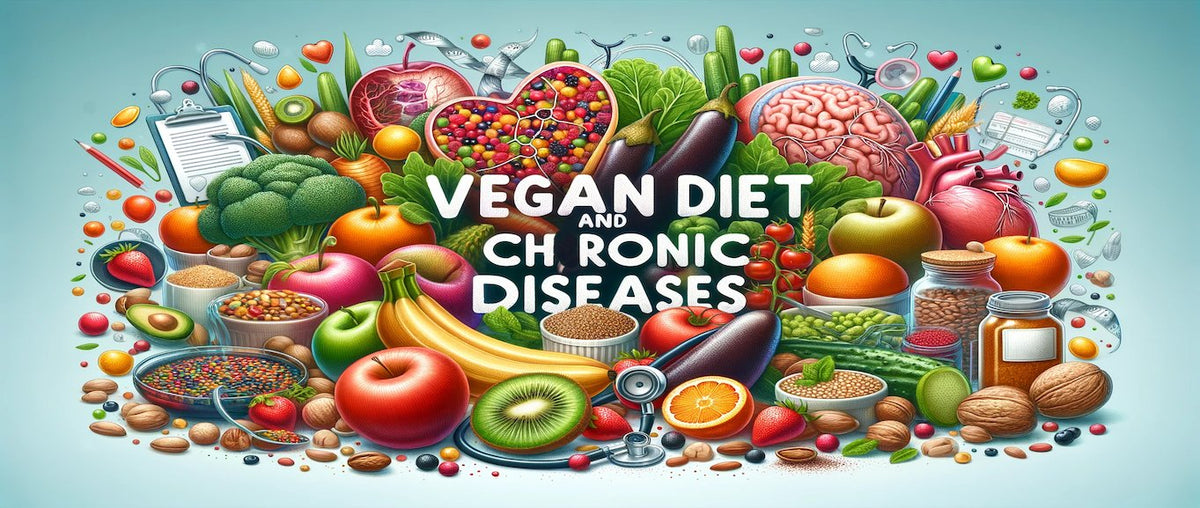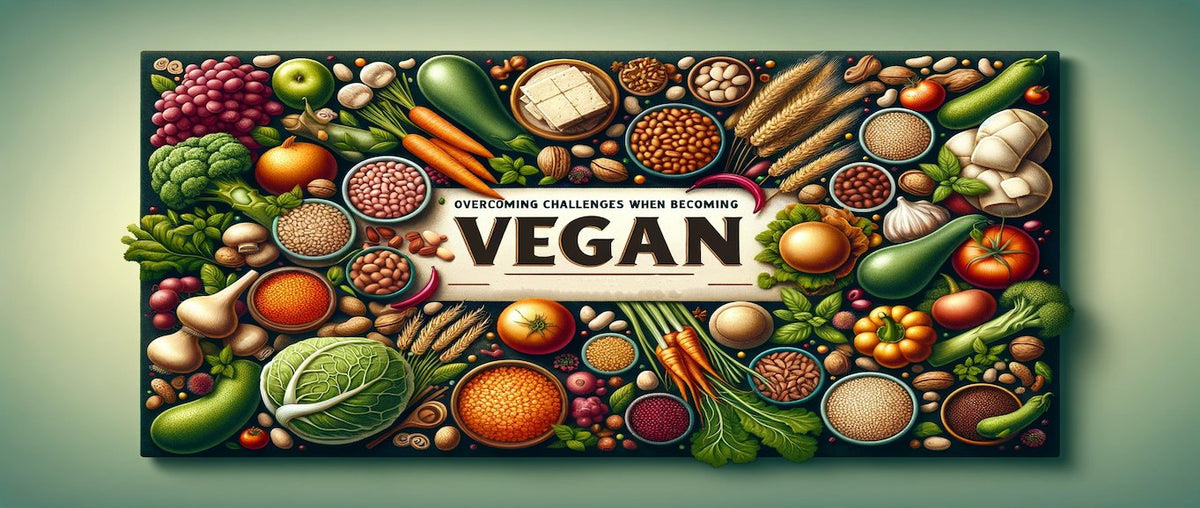Vegan Diet: Your Ally Against Chronic Diseases
The Impact of Vegan Diets on Chronic Diseases
plant based Diets for Chronic Disease Prevention
Vegan and plant based diets have been linked with numerous health benefits, particularly in the prevention and management of chronic diseases. Studies have shown that these diets can significantly reduce the risk of heart disease, diabetes, certain cancers, obesity, and more.
Heart Disease and Vegan Diets
- A study published in the Journal of the American Heart Association found that adherents to a plant based diet had a 16% lower risk of cardiovascular disease and a 32% lower risk of dying from a cardiovascular condition compared to those who ate the least amount of plant based foods.
- Another study in JAMA Internal Medicine revealed that plant based diets could lower the risk of heart failure by up to 41% among people without a history of heart disease.
Diabetes and plant based Eating
- Research in the Journal of Nutrition showed that a higher intake of plant based foods and a lower intake of animal foods was associated with a 23% reduced risk of type 2 diabetes.
- A comprehensive study in Diabetologia found that plant based diets, especially when rich in high-quality plant foods, are associated with substantially lower risk of developing type 2 diabetes.
Cancer Prevention and Vegan Choices
- The World Cancer Research Fund reports that plant based diets can reduce the risk of cancer, particularly cancers of the stomach, colon, and rectum.
- A meta-analysis in the International Journal of Epidemiology concluded that a higher consumption of fruits and vegetables is associated with a lower risk of certain types of cancer.
Obesity and Vegan Diets
- According to a study in the Journal of General Internal Medicine, vegan diets were more effective for weight loss compared to omnivorous, pescatarian, and vegan diets.
- Research in Nutrition Reviews found that plant based diets are associated with lower body mass index (BMI) and reduced obesity prevalence.

Nutritional Considerations in a Vegan Diet
Ensuring Balanced Nutrition
Adopting a vegan diet requires mindful planning to ensure a balanced intake of essential nutrients. Here's a guide to key nutritional considerations:
- Protein: Essential for muscle and tissue health. plant based sources include legumes, tofu, tempeh, edamame, and seitan.
- Vitamin B12: Vital for nerve function and blood cell production. Vegans should consider fortified foods or supplements.
- Iron: Crucial for oxygen transport in the blood. Sources include lentils, chickpeas, hemp seeds, and quinoa.
- Calcium: Important for bone health. Found in fortified plant milks, tofu made with calcium sulfate, and leafy greens.
- Omega-3 Fatty Acids: Important for brain health. Flaxseeds, chia seeds, walnuts, and algae-based supplements are good sources.
Common Nutritional Deficiencies and How to Avoid Them
Vegans need to be aware of potential nutritional deficiencies:
- Vitamin B12: Only available in animal products naturally, so supplementation or fortified foods are necessary.
- Iron: plant based iron is less absorbable, so intake should be higher. Consuming vitamin C-rich foods can enhance absorption.
- Omega-3s: Typically found in fish, so algae-based supplements or flaxseeds can be an alternative.
Relationship between Types of Dietary Fats and Health Outcomes
- Saturated and Trans Fats: Found in some plant oils, these fats can increase heart disease risk. Limit intake of coconut oil and palm oil.
- Unsaturated Fats: Found in nuts, seeds, avocados, and olive oil. These fats can reduce heart disease risk and improve cholesterol levels.
Types of Protein, Red Meat Consumption and Health Outcomes
- plant based Proteins: Associated with lower risks of heart disease, high blood pressure, and diabetes.
- Red Meat Consumption: Linked to higher risks of heart disease, stroke, and certain types of cancer.
Also Read
Making the Transition to a Vegan Diet
Starting a Vegan Diet
Transitioning to a vegan diet can be a significant change. Here are some tips to make it easier:
- Start Slowly: Gradually replace meat and dairy with plant based alternatives.
- Learn New Recipes: Explore vegan cooking to keep meals interesting and nutritious.
- Read Labels: Check food labels for animal-derived ingredients.
- Supplement Wisely: Consider supplements for nutrients like B12 and Omega-3.
Vegan Recipes and Meal Planning
Meal planning is key to a balanced vegan diet. Here are some ideas:
- Breakfast: Oatmeal with fruits and nuts, or tofu scramble.
- Lunch: Quinoa salad with chickpeas and mixed vegetables, or a veggie wrap.
- Dinner: Lentil soup, vegan chili, or stir-fried tofu with vegetables.
- Snacks: Fresh fruits, hummus with veggies, or nut butter on whole grain toast.

Benefits of plant based Diets
Comprehensive Look at the Advantages
Adopting a plant based diet can offer a range of health benefits:
- Improved Heart Health: Lower rates of heart disease due to reduced saturated fat and cholesterol intake.
- Weight Management: Easier to maintain a healthy weight with high-fiber, lower-calorie foods.
- Diabetes Prevention: Lower risk of type 2 diabetes due to stable blood sugar levels from a high-fiber diet.
- Cancer Risk Reduction: Certain cancers are less common in people who follow plant based diets.
Vegan Diets Reduce the Risk for Chronic Disease
- Heart Disease: A vegan diet can lower the risk of heart disease by reducing factors like bad cholesterol and blood pressure.
- Type 2 Diabetes: plant based diets help in managing and even preventing diabetes.
- Certain Types of Cancer: Diets rich in fruits, vegetables, and whole grains are linked to a reduced risk of some cancers.
Conclusion
Adopting a vegan or plant based diet can be a transformative step towards improving one’s health and reducing the risk of chronic diseases. As we have explored in this article, the benefits of such diets are extensive, ranging from improved heart health and weight management to reduced risks of diabetes and certain types of cancer.
Recap of Key Points:
- Diverse Definitions: Understanding the differences between vegan and plant based diets is crucial for making informed dietary choices.
- Nutritional Considerations: A vegan diet requires careful planning to ensure a balanced intake of essential nutrients like protein, B12, iron, calcium, and omega-3 fatty acids.
- Health Benefits: Numerous studies support the role of vegan and plant based diets in reducing the risk of chronic diseases, such as heart disease, diabetes, and certain cancers.
- Transitioning Tips: Starting slowly, learning new recipes, reading labels, and supplementing wisely can make the transition to a vegan diet more manageable and enjoyable.
- Myths vs. Facts: Addressing common misconceptions about vegan diets helps in understanding their health potential and nutritional completeness.
Embracing a plant based Lifestyle:
Adopting a vegan diet is not just about dietary changes; it's a lifestyle choice that prioritizes health, ethical considerations, and environmental sustainability. With the right approach, it can be a fulfilling and rewarding journey.
Remember, the key to a successful vegan diet is diversity and balance. Including a wide variety of plant based foods ensures you get all the necessary nutrients, and experimenting with new recipes keeps your meals exciting and flavorful.
As the world becomes more conscious of the impact of diet on health and the environment, vegan and plant based diets are gaining popularity. Embracing this lifestyle can lead to a healthier, more sustainable, and compassionate world.










